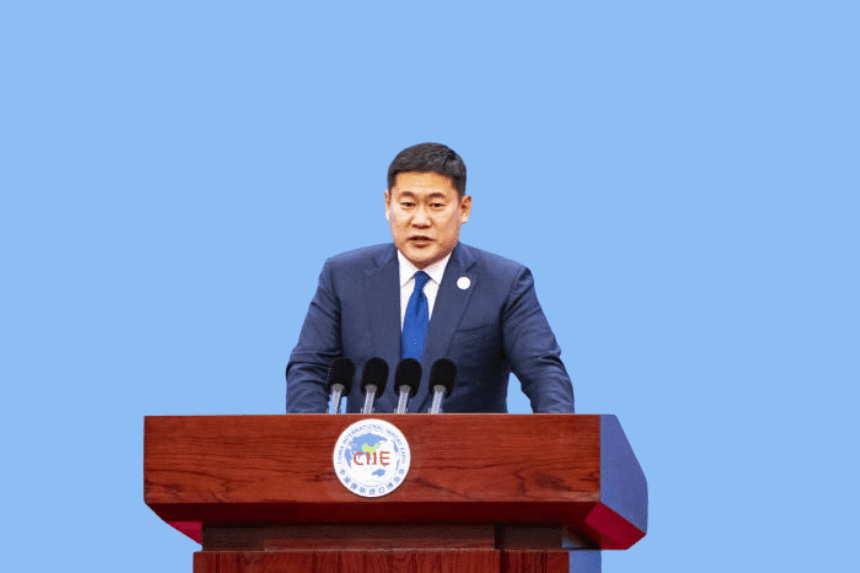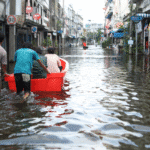As a result of losing their vote of confidence in parliament, Mongolia’s Prime Minister officially resigned. It happened after the public grew angry at claims of corruption and how state resources were treated. The decision to resign demonstrates how citizens and government officials alike feel dissatisfied, and people are protesting in the city and elsewhere. Authorities said the trust of the public and lack of clarity were the main factors why they decided to pull their votes. Because of the political crisis, it is now clear that changes are needed within institutions. The departure of the previous leader will make things more uncertain for Mongolia’s democracy, forging the path to important developments.
- What Triggered the Prime Minister’s Resignation?
- How Did Public Protests Influence the Outcome?
- What Were the Main Corruption Allegations?
- How Has Parliament Responded to the Crisis?
- Who Will Lead Mongolia Next?
- What Does This Mean for Mongolia’s Economy?
- How Are Citizens Reacting to the Resignation?
- What Lessons Can Other Democracies Learn from This Crisis?
- What Comes Next for Mongolia?
- Final Thoughts: A Nation at a Turning Point
What Triggered the Prime Minister’s Resignation?
Mongolia’s Prime Minister resigned immediately after losing a no-confidence vote in Parliament. They pointed to increasing public unease, which grew after several big corruption cases, especially those involving mining revenues, Mongolia’s most important income. For many months, people began to feel more and more angry, but things got really serious when thousands gathered to ask for justice and better systems.
A government once expected to improve government transparency and help the economy faced rising controversy. Some Parliament members said the government broke its promises and worked to benefit politically connected groups. The results made it clear how much faith in the government had fallen over time.
How Did Public Protests Influence the Outcome?
Most of the Prime Minister’s downfall was caused by public opinion against him. Marches for peace and democracy took place in the capital and also in several provinces. Many young professionals and students called for a complete change in the institutions they believed were corrupt. They required authorities to deliver justice, accountability, and restore trust in the way democracy works.
Social media helped make the voices of citizens louder, uniting people from all parts of the country. Many people shared hashtags and videos from the protests, which encouraged lawmakers to take action. Protests intensified the focus on the government and also changed the atmosphere inside Parliament. Aware that there was more public criticism of the government, lawmakers probably used the vote of no confidence to present themselves as distancing themselves from the administration’s problems. Read another article on the Italian PM Libya War Crimes Probe
What Were the Main Corruption Allegations?
Most serious accusations involved how the profits from mining were used, as Mongolia gets much of its GDP from the mining sector. Some reports indicated that considerable public money that should have been used for welfare and infrastructure was stolen or concealed by using unclear government processes. People opposed to the system claimed that politicians got access to advantages, certain deals, and that numbers were misused.
The people were also worried by the lack of openness in government buying and repeated use of contracts that did not need to be bid. Independent investigations and open audits were rejected for a long time, which made people believe that something was being kept secret. Rising prices, slow wage growth, and now the corruption claims were the final problems that caused discontent among most Mongolians.
How Has Parliament Responded to the Crisis?
The Mongolian Parliament responded right away after a long period of growing pressure. The majority of members of Congress, including a few who had given the Prime Minister their backing, now backed a vote of no confidence. It showed just how unhappy members of Congress were with the bill.
After the vote was held, Parliament turned to discuss and form a government to lead the transition. Talks today revolve around maintaining stability as well as dealing with urgent requests for changes. There are suggestions from some lawmakers about having another national review and increasing controls over how taxpayer money is used in the future. Some are arguing for updates to the constitution to give oversight more power and limit executive control.
Who Will Lead Mongolia Next?
Since the Prime Minister’s resignation has been made official, there is now a focus on who will take his place. The party in control set the nomination process in motion, but figures from opposition parties insist that the selection should be more open. Many political experts believe that setting up a temporary government made up of technocrats may bring stability and regain the people’s trust in the system.
A number of ideas for VP candidates have been floated, both from top party figures and non-party politicians known for their honesty. For anyone chosen as president, getting the country’s credibility back, revitalizing the economy, and addressing a wary population will be a serious challenge. Because of the power vacuum, those seeking reform can suggest necessary changes within institutions.
What Does This Mean for Mongolia’s Economy?
Mongolia’s economy, which relies on mining and exports to nearby countries, is in a difficult position at the moment. Because of the political problems, there have been drops in foreign investor interest. Missing a quick and open move to a new government could see companies and money leaving the country and major projects being put on hold.
Departing from the office might turn out to be critical to the economy. Making important changes toward transparency and reform may attract investors and lead to support from international partners. Recovering trust in the government helps the economy, such that Mongolia can work towards lessening its dependence on raw materials.
How Are Citizens Reacting to the Resignation?
There is a sense of cautious hope about what comes next from the public. FreedomActivism is being praised by many as responsible for the departure. While expressing joy at Mohamed Bin Salman’s resignation, the protesters pointed out that this resignation is not by itself a solution. They expect real changes in the system instead of only replacing the president.
Some of these groups are demanding a clear process when stepping down and the prosecution of anyone in power accused of corruption. People’s trust has not been fully restored, which means signs of political maneuvering could stir up more protests. Already, many honored the resignation by joining active citizenship, showing they believe mostly in the power of their public voices.
What Lessons Can Other Democracies Learn from This Crisis?
The political events in Mongolia make it clear how important public accountability is for democracy to function. It describes the collapse of political careers and instability in governments brought by unchecked corruption. It also points out how involvement by citizens, free speech in the media, and watching over institutions are key.
The Mongolian crisis teaches that closing off government decision-making can be very harmful for newer democracies. It also shows how people use digital tools and peaceful means to bring about changes worth noticing. The points mentioned apply to any country facing problems of governance in a fast-changing global setting.
What Comes Next for Mongolia?
After that, a new cabinet should be formed, a complete audit of expenses conducted, and efforts should be made to win back the trust of the public. The new government must take steps to show both people inside Mongolia and people overseas that the country remains secure and dedicated to change.
When Parliament deals with the crisis, it may decide to hold elections before their original schedule. Improving accountability means that groups in civil society should ensure that the public’s concerns are not left behind during political bargaining.
As time goes on, Mongolia might be able to develop new plans for how it governs itself. If the country becomes more open, maintains its legal rules, and invests in learning about civics, it will be stronger after the crisis. Even though the process will not be smooth, improvements can take place if there is strong leadership and the public participates.
Final Thoughts: A Nation at a Turning Point
Mongolia is now facing a very important time. Resigning as Prime Minister not only means a new leader, but also demonstrates that democratic demands are needed for crucial changes. Many people around the globe are following to see how this persisting democracy shifts and rebuilds trust for its future. For many in Mongolia, this election means changing their nation for upcoming generations.








